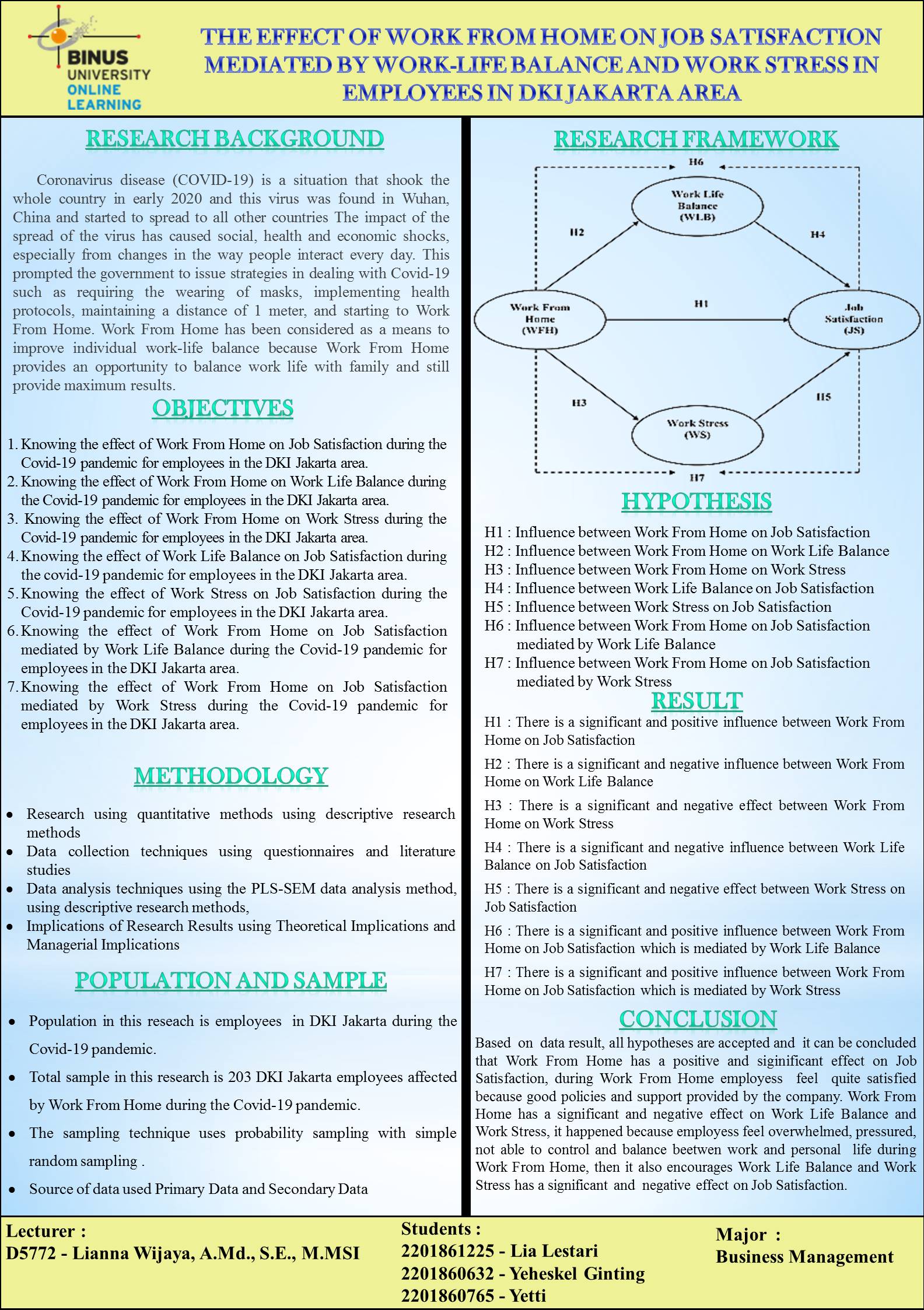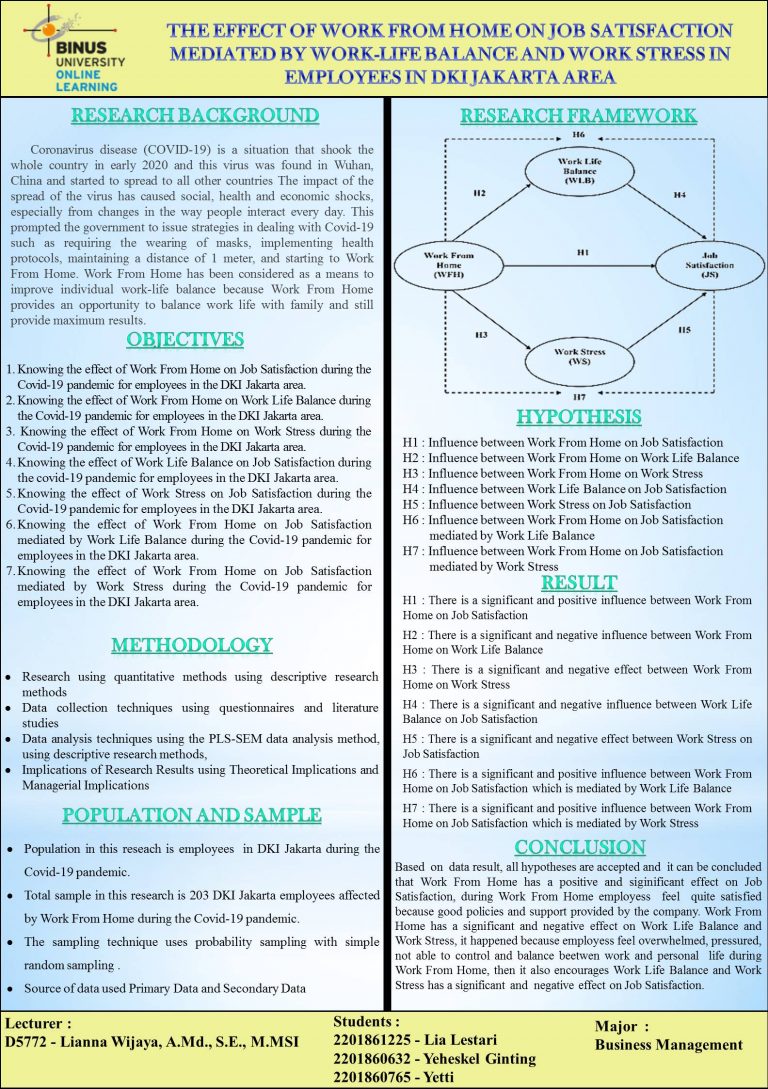The Effect of Work From Home on Job Satisfaction Mediated by Work-Life Balance and Work Stress in Employees in DKI Jakarta Area

The outbreak of Coronavirus disease (COVID-19) in early 2020, originating in Wuhan, China, has had far-reaching effects on various aspects of society, including social, health, and economic repercussions. The global spread of the virus necessitated significant changes in daily interactions among individuals. Consequently, governmental authorities have implemented various strategies to combat Covid-19, such as mandating the use of face masks, enforcing health protocols, advocating for a 1-meter distance between individuals, and promoting remote work arrangements. The adoption of Work From Home policies has been recognized as a method to enhance the equilibrium between professional responsibilities and personal life, offering individuals the opportunity to strike a balance between work and family commitments while maintaining productivity.
By limiting physical interaction in workplaces, work-from-home arrangements can help curb the spread of the virus, protecting the health of employees and the community. The impact on economic productivity.
Keywords: SDG 3 (Health), SDG 8 (economic growth)

